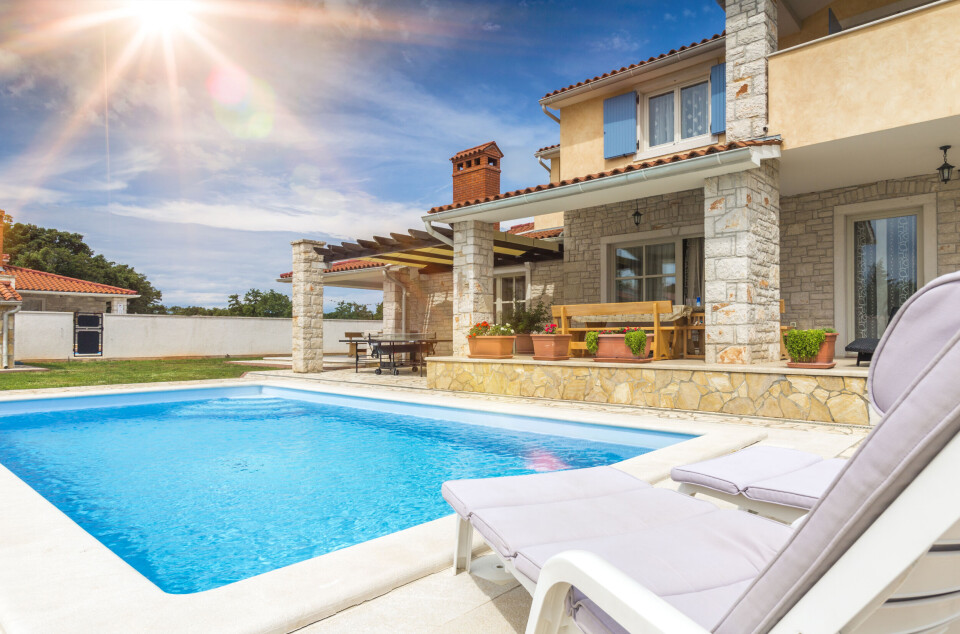-
How to check whether you have been issued a speeding fine in France
Fines can be sent anytime after an incident
-
Paris pledges action against voyeurs in public swimming pool changing rooms
It comes after several women came forward to report similar sexual assaults
-
How to help wounded wildlife and strays in France
Is illegal to treat wild animals at home unless you have authorisation
How to keep your swimming pool open despite drought in France
With more than three million private pools in France, but increased water restrictions across the country, we share professional tips on how to keep your pool safe and useable

Many residents in France who have swimming pools are currently unable to refill them due to drought water restrictions - but an industry group representing pool-makers has offered tips to help keep pools usable this summer.
A total of 19 departments have so far imposed some kind of water restriction measure, notably in the Pyrénées-Orientales, where ‘crisis level’ has been reached.
Read more:How bad is the drought in France? See restrictions in your department
There are 3.4 million private pools in France, with many owners now facing water restrictions that could make their upkeep more difficult. This is despite family pools in France making up just 0.1% of the national water consumption.
However, in response to the situation, the industry group la Fédération des professionnels de la piscine (FPP) has issued advice.
- Cover your pool as much as possible
Covering your pool will allow you to limit evaporation by as much as 40 to 90%. ‘Bubble’ covers, which are like giant bubblewrap rolls, are among the cheapest option, and can cost €200-300 depending on the size of your pool.
You can also opt for a stretch cover (several hundred euros). In contrast, an automatic cover or a permanent pool enclosure will set you back several thousand euros, but will also allow you to secure your pool year-round, for years to come.
- Check the water quality regularly
The FPP states: "Our message to pool owners is clear: never change the water in your pool! But to achieve this, it is essential to regularly check the quality of the water.”
The federation advises you to take regular samples from your pool, and to have it analysed by a professional at least once a year. They can then advise on products that can help you to treat and rebalance your water, and keep it clean without requiring a water replacement.
This should only cost “a few dozen euros”, the group said.
For a larger cost, you can also install an automatic treatment system, which will ensure that the water quality is of a high standard all year round.
- Upgrade your filtration and water circulation systems
In the past 25 years, water usage by private pools has dropped by 45% in France, largely due to innovation in filtration techniques, and water circulation devices, the FPP said.
The better the system, the less likely you are to have to refill (or empty and refresh entirely) the water in your pool. Similarly, better systems mean you will need fewer chemicals or products in your pool, which will save money and make your water more pleasurable to use.
A trend for smaller and shallower swimming pools has also helped, with the average pool size in 1980 around 12x6m and 1.80m deep, compared to 7x3m and 1.30m deep averages expected by 2025, the FPP said.
- Refill your pool with natural water supplies
You can also use natural resources to fill your pool, to avoid using drinking water from the tap or hose.
You can, for example, install a water collector outside to collect rainwater. Demand for these has soared in some parts of France, as people look to alternative ways to collect water.
Read more:Tips for buying a rainwater tank in France
“You can then transfer the rainwater to your pool using a pump system, or by installing a simple hose if the situation allows,” advised the FPP.
“To fill your pool, you can also simply uncover your pool in case of prolonged rain. There is no health risk as rainwater is not harmful to your pool,” it said.
The FPP offers a quality mark for its professionals, called the Propiscines mark. It advises that owners consult someone with this mark, as they are informed of the most up-to-date ways to save water, make your pool more sustainable, and save on chemical products.
Read also
French region offers €20,000 for rain collectors as popularity surges
Rainwater, wells: eight questions about water restrictions in France
























